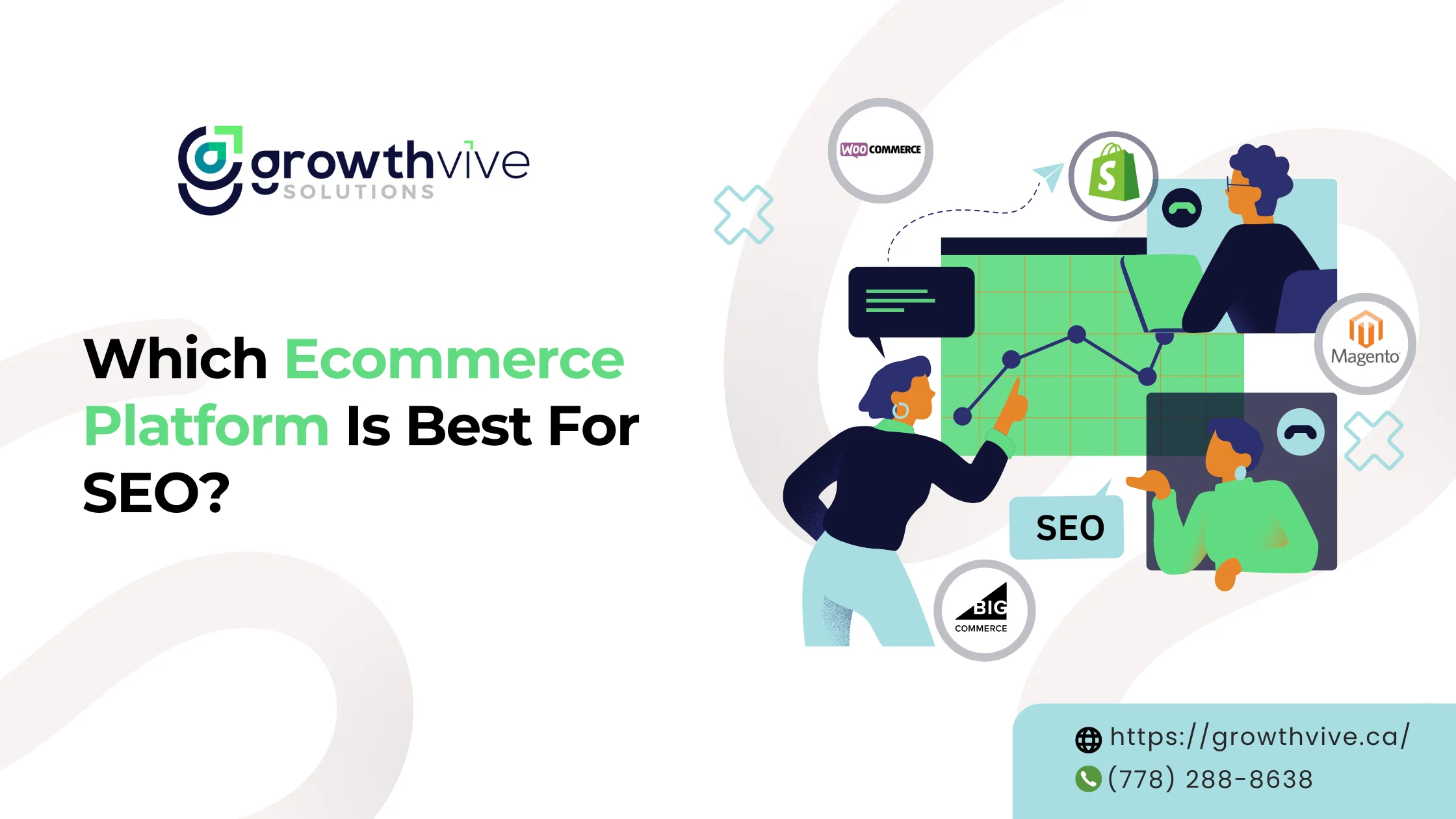Launching an eCommerce store is exciting, but choosing the right platform can be challenging. With so many options available, knowing which is the best fit for your business needs can be hard.
However, it’s essential to consider your eCommerce platform search engine optimization (SEO) capabilities. As it can significantly impact your online visibility and success.
In this blog, we’ll discuss some of the most popular eCommerce platforms and evaluate their SEO performance. So you can make an informed decision about your business needs. However, using the best eCommerce SEO services for your business is also important. It will ensure that your business grows and you get increased sales.
Top eCommerce platforms for SEO
→ Shopify: Easy to use with built-in SEO features
First up is Shopify. As one of the most widely used eCommerce platforms, Shopify has much to offer regarding SEO. It’s user-friendly, has built-in SEO features, and offers a range of plugins and apps that help boost your store’s search engine rankings.
Shopify’s built-in SEO features include customizable meta descriptions and title tags, optimized URLs, and automatic sitemaps. The platform’s user-friendly interface makes optimizing your store’s SEO easy without coding knowledge. However, some users may find that the platform’s limitations on customizations make it difficult to optimize certain aspects of their store for SEO.
→ WooCommerce: Flexible and customizable SEO solution
Next, we have WooCommerce. As a plugin for WordPress, WooCommerce gives users a lot of flexibility in terms of customization and SEO. With the right plugins and themes, you can optimize your store for search engines and create a unique brand experience for your customers.
It includes customizable meta descriptions, title tags, optimized URLs, and sitemaps. Additionally, the platform’s flexibility allows for more advanced SEO techniques, such as schema markup and structured data. However, this flexibility comes at the cost of a steeper learning curve, as users need to know WordPress to get the most out of WooCommerce.
→ Magento: Robust SEO features for advanced users
Another popular platform is Magento. While it’s known for its highly advanced features and scalability, it can be more challenging than other platforms. However, it offers a range of SEO-friendly features, including customizable URLs, meta tags, and sitemaps.
Magento’s advanced SEO capabilities include schema markup, structured data, and multi-language support. Additionally, the platform’s strong community support means that users can find plenty of resources and plugins to help improve their store’s SEO. However, Magento’s complexity can make it difficult for beginners to get started, and it can be pricey for smaller businesses.
→ BigCommerce: User-friendly with built-in SEO features
Finally, we have BigCommerce. This platform offers a range of built-in SEO features, including customizable URLs, meta tags, and sitemaps. It also has a user-friendly interface and a range of apps and plugins to help optimize your store for search engines.
BigCommerce’s SEO capabilities include automatic image optimization, mobile-friendly design, and social media integration. The platform’s pricing structure includes unlimited bandwidth and storage, making it a good choice for businesses with high traffic volumes. However, some users may find the platform’s pricing structure more expensive than other options.
Choosing the Right eCommerce Platform for SEO
So which eCommerce platform is best for SEO? Ultimately, it depends on your specific needs and preferences. If you’re looking for a user-friendly platform with built-in SEO features, Shopify or BigCommerce may be your best choice. If you’re willing to put in more time and effort for a highly customizable platform, WooCommerce or Magento may be more suitable.
It is also important to get professional eCommerce SEO services for the best results. They will increase the platform’s impact and offer a more strategic approach, resulting in better leads and conversions for your business.

